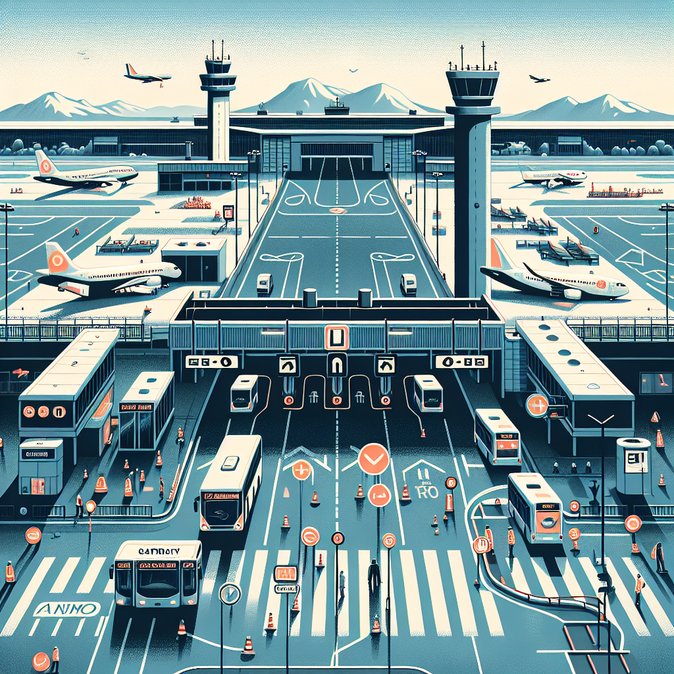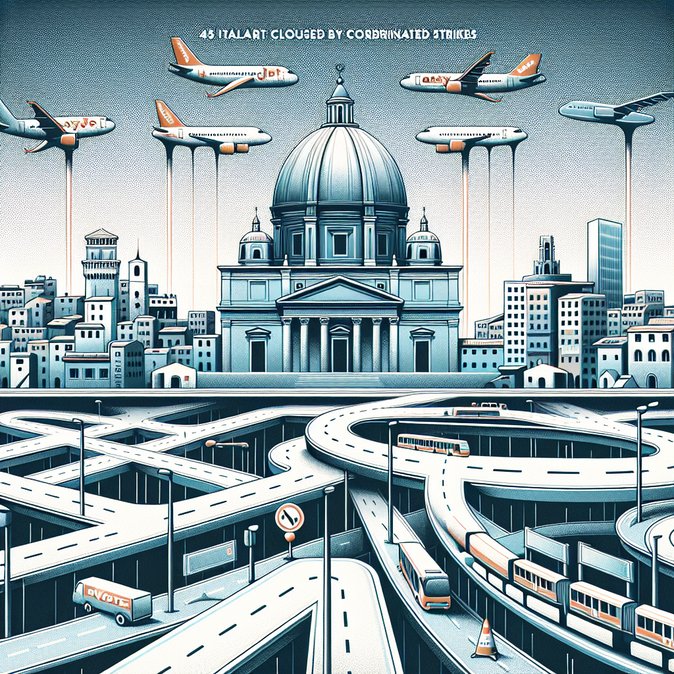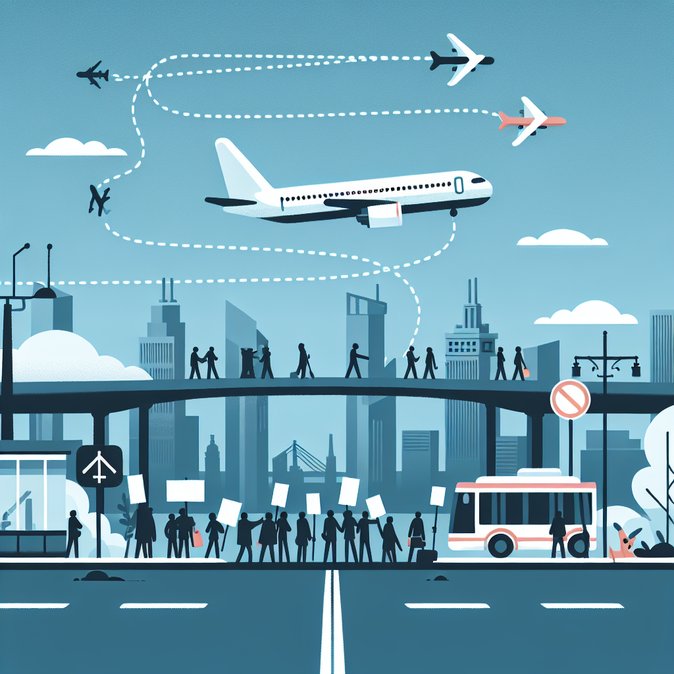
Italy’s transport network ground to a near-halt on 14 November after five separate strikes hit the aviation and urban-transit sectors simultaneously. The walk-outs were called by the air-traffic-controller union ASTRA (part of ENAV), cabin-crew unions representing easyJet and Volotea employees, as well as Rome’s municipal-transport unions USB Lavoro Privato and ORSA TPL. In total, more than 10,000 airline passengers and hundreds of thousands of commuters were caught up in delays or cancellations. Four-hour stoppages by controllers (13:00-17:00) forced airlines to thin flight schedules at all 45 ENAV-managed airports, while a 24-hour strike by Volotea crews and a four-hour stoppage (13:00-17:00) by easyJet crews added further disruption. Guaranteed-service windows mandated by ENAC (07:00-10:00 and 18:00-21:00) reduced, but did not eliminate, cancellations.
Rome was hit twice: passengers arriving at Fiumicino and Ciampino found lengthening queues, then faced limited bus, tram and metro services as ATAC staff walked off the job for 24 hours (with minimum service from 05:00-08:29 and 17:00-20:00). Milan Linate, Naples-Capodichino, Venice and Bari reported average departure delays of 45-90 minutes, according to ENAV’s real-time dashboard. National rail operators Trenitalia and Italo said mainline trains mostly ran on schedule, but local services around the capital were curtailed because many drivers belong to the same unions striking in Rome.
The unions cite stalled contract talks, high inflation and staffing shortages as triggers. ASTRA claims Italy’s air-traffic-control workforce has shrunk by 12 per cent since 2020, forcing compulsory overtime and eroding safety margins. easyJet’s USB union says cabin-crew wages lag comparable EU carriers by 15-20 per cent, while Volotea’s UILT-UIL members want formal recognition of their union and parity with larger airlines’ contracts. ATAC workers are demanding the city honour a 2024 pledge to hire 1,500 additional bus drivers and upgrade ageing rolling stock.
![Nationwide Aviation and Public-Transport Strikes Snarl Travel Across Italy]()
For business-travel managers the timing is awkward: Milan Fashion Week Men’s (16-20 November) and a cluster of pre-Christmas trade fairs in Bologna and Verona rely heavily on domestic flights and Rome transfers. Global mobility teams were advised to reroute executives via Zurich or Munich, use high-speed rail where possible and build in 24-hour buffer windows for long-haul connections. Employers with posted workers in Italy were reminded that strike-related delays are normally not covered by EU Passenger Rights Regulation 261 and that travellers must file reimbursement claims directly with carriers.
Looking ahead, Italy’s transport ministry has summoned unions and employers to mediation on 20 November. Failure to reach agreement could trigger another strike ballot in early December—just as Italy braces for the holiday-travel peak and the first rehearsal events for the Milan-Cortina 2026 Winter Olympics.
Rome was hit twice: passengers arriving at Fiumicino and Ciampino found lengthening queues, then faced limited bus, tram and metro services as ATAC staff walked off the job for 24 hours (with minimum service from 05:00-08:29 and 17:00-20:00). Milan Linate, Naples-Capodichino, Venice and Bari reported average departure delays of 45-90 minutes, according to ENAV’s real-time dashboard. National rail operators Trenitalia and Italo said mainline trains mostly ran on schedule, but local services around the capital were curtailed because many drivers belong to the same unions striking in Rome.
The unions cite stalled contract talks, high inflation and staffing shortages as triggers. ASTRA claims Italy’s air-traffic-control workforce has shrunk by 12 per cent since 2020, forcing compulsory overtime and eroding safety margins. easyJet’s USB union says cabin-crew wages lag comparable EU carriers by 15-20 per cent, while Volotea’s UILT-UIL members want formal recognition of their union and parity with larger airlines’ contracts. ATAC workers are demanding the city honour a 2024 pledge to hire 1,500 additional bus drivers and upgrade ageing rolling stock.

For business-travel managers the timing is awkward: Milan Fashion Week Men’s (16-20 November) and a cluster of pre-Christmas trade fairs in Bologna and Verona rely heavily on domestic flights and Rome transfers. Global mobility teams were advised to reroute executives via Zurich or Munich, use high-speed rail where possible and build in 24-hour buffer windows for long-haul connections. Employers with posted workers in Italy were reminded that strike-related delays are normally not covered by EU Passenger Rights Regulation 261 and that travellers must file reimbursement claims directly with carriers.
Looking ahead, Italy’s transport ministry has summoned unions and employers to mediation on 20 November. Failure to reach agreement could trigger another strike ballot in early December—just as Italy braces for the holiday-travel peak and the first rehearsal events for the Milan-Cortina 2026 Winter Olympics.


